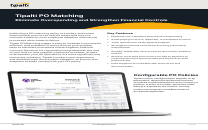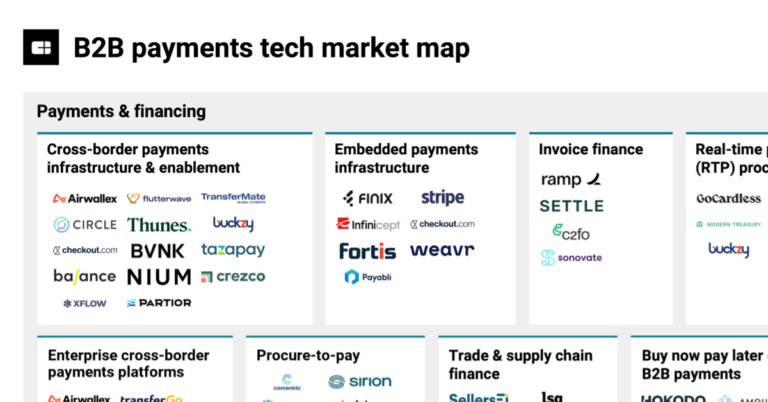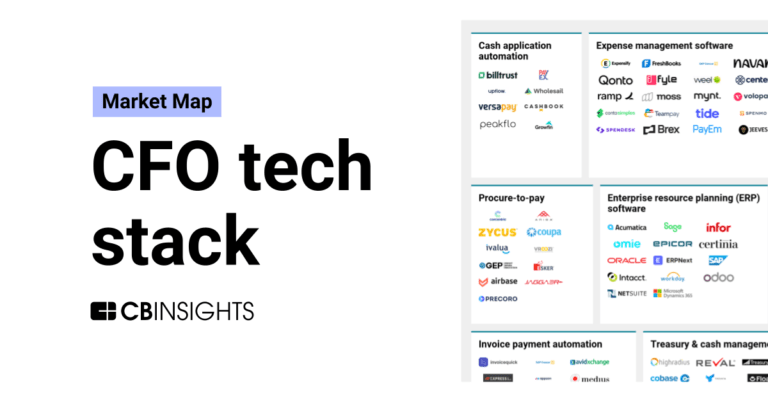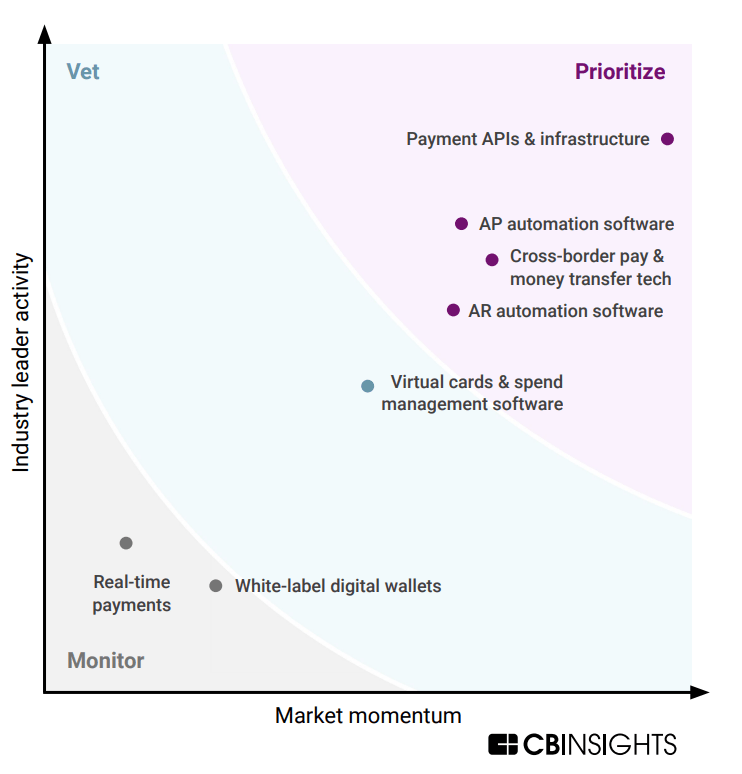
Tipalti
Founded Year
2010Stage
Series F - II | AliveTotal Raised
$706.25MLast Raised
$150M | 2 yrs agoMosaic Score The Mosaic Score is an algorithm that measures the overall financial health and market potential of private companies.
-8 points in the past 30 days
About Tipalti
Tipalti is a global payables automation company that specializes in streamlining all phases of the accounts payable and payment management workflow. The company offers a cloud-based platform that simplifies the management of supplier payments, encompassing supplier onboarding, tax and regulatory compliance, invoice processing, and payments to suppliers worldwide in various methods and currencies. Tipalti's solutions are designed to reduce the workload for accounts payable departments and enhance financial and compliance controls. It was founded in 2010 and is based in Foster City, California.
Loading...
Tipalti's Product Videos


Tipalti's Products & Differentiators
Supplier Management
Designed to easily guide suppliers through submitting contact information, banking details, and tax forms, Tipalti’s intelligent, dynamic self-service supplier portal helps you effortlessly onboard vendors while improving supplier relationships with a best-in-class, web-based payments experience – all done in a few simple steps.
Loading...
Research containing Tipalti
Get data-driven expert analysis from the CB Insights Intelligence Unit.
CB Insights Intelligence Analysts have mentioned Tipalti in 5 CB Insights research briefs, most recently on Aug 23, 2024.

Aug 23, 2024
The B2B payments tech market map
Oct 26, 2023
The CFO tech stack market map
Oct 12, 2023
The procurement tech market mapExpert Collections containing Tipalti
Expert Collections are analyst-curated lists that highlight the companies you need to know in the most important technology spaces.
Tipalti is included in 6 Expert Collections, including Unicorns- Billion Dollar Startups.
Unicorns- Billion Dollar Startups
1,258 items
SMB Fintech
2,003 items
Payments
3,082 items
Companies in this collection provide technology that enables consumers and businesses to pay, collect, automate, and settle transfers of currency, both online and at the physical point-of-sale.
Fintech 100
999 items
250 of the most promising private companies applying a mix of software and technology to transform the financial services industry.
Tech IPO Pipeline
539 items
Track and capture company information and workflow.
Fintech
9,394 items
Companies and startups in this collection provide technology to streamline, improve, and transform financial services, products, and operations for individuals and businesses.
Latest Tipalti News
Jan 7, 2025
Israeli startups encourage employees to sell shares Secondary offerings illustration: Gil Gibli In a clear sign that tech companies have come to terms with lower valuations, employees are being urged to sell shares, even at a big discount. "Globes" investigates. A new trend seems to be taking hold in Israel's tech sector. After a year of almost complete stagnation, secondary trading in private technology companies is coming to life, but this time with an interesting twist: the entrepreneurs themselves are leading the movement. "This is a precedent that we have not seen in the past," Moran Chamsi, managing partner at secondary fund Amplefields tells "Globes." "Entrepreneurs and companies are beginning to themselves contact secondary funds instead of waiting for external offers." This change marks a dramatic shift in the attitude of Israeli tech companies to the secondary market. During 2023 and into early 2024, trading in private company shares went into a coma. One reason, Chamsi explains, is an unbridgeable gap between expectations of sellers and buyers. He says, "In early 2024, we saw companies that were valued at a discount of 60% of their valuations, and the parties simply could not meet. It was difficult to bridge the gap between the real value and the value that the company had received in 2021." So, while buyers demanded significant discounts in light of changing market conditions, sellers had difficulty coming to terms with the dramatic decline in value. In effect, a situation was created that could be likened to a game of chess - except that in this case neither player was willing to make the first move. Israeli companies are undergoing a transformation The new reality of 2024 created challenges for tech companies. They were required to maintain a balanced budget while at the same time retaining their talented employees. The new conditions led to a change in the entrepreneurs' perception of the secondary market. Many employees in these companies hold options, but exercise these options requires the employee to invest money by paying the exercise price and tax, without having an immediate way to sell the shares and recoup the money. In contrast, when a company allows employees to sell on the secondary market, the employee can receive immediate financial compensation. Instead of raising salaries or handing out bonuses - steps that increase the company's expenses - employees can convert some of their options into cash. In other words, this is a solution that allows companies to retain employees and reward them without increasing costs. This change is also reflected in the numbers. According to data from the world's largest trading companies, Israeli companies have undergone a transformation. If in the past they feared that selling shares on the secondary market would damage their reputation, today they actually encourage it. Moreover, they are willing to approve deals, even when the share price is significantly lower than the valuation in the company's last financing round. RELATED ARTICLES Among Israeli companies exemplifying this change is fintech company Tipalti. The company, which has developed an automated payment system for suppliers and has hundreds of employees in Israel, raised capital in December 2021 at a valuation of $8.3 billion. The price per share was $ 17.12 at the time. Today, the same share is offered on the secondary market for $ 5.50 - a discount of 68%. Another Israeli example is code security company Snyk, which has become a leader in its field. Snyk's shares are currently trading at $5.50 per share - a 52% discount on its most recent financing round. In the past, the company was valued at $8.5 billion but today the secondary market prices it at about $3.5 billion. Israeli fintech company HoneyBook, a platform for managing small businesses that has grown significantly in recent years, is also currently offered on the secondary market at a price of $5.16 per share - a 47% discount from its last round, which closed at $9.67 per share in November 2021. Sisense, an Israeli analytics company that allows organizations to analyze data intelligently, has experienced a significant fall in value. Its shares are currently trading on the secondary market at a 71% discount - with the price falling from $5.20 per share to $1.50. BigID, which has developed information security and privacy technology, now sees its shares trading on the secondary market at a 46% discount. Price lists that look like the Yad 2 second-hand sales website A source working in the secondary market compares these price lists to the Yad 2 (second hand) website. According to him, "They show the prices at which people want to buy or sell. It is important to understand that not all of these prices lead to actual deals, but when deals do close, the final price usually ranges up to 15% above or below the asking price. These are the prices that are currently 'running' in the market and this information, which comes from investment bankers, reflects the mood of the market even if the specific deal doesn't close at this exact price. In other words - the price lists give a good indication of trends." "What is interesting," Chamsi emphasizes, "is that these discounts do not prevent companies from approving the deals. On the contrary, we are seeing more and more Israeli companies that understand that the secondary market is an important tool in their toolbox." He explains that instead of raising salaries or handing out bonuses that weigh on cash flow, companies can allow employees to sell some of their shares. "It's a win-win," he says. "Employees get liquidity, and the company, in turn, preserves its cash for ongoing operations." "These discounts are no longer seen as a negative sign. On the contrary, they represent a recognition of market reality and an understanding that liquidity is a strategic asset," explains Chamsi. This is a sharp change from the approach that prevailed in 2021 and 2022, when companies treated every discount as damage to their reputation. "The terminology itself has changed, we're not just talking in terms of discount," says Chamsi. "There are additional metrics such as multiples that we take into account to re-price the company now, or for example a comparison with other similar growth rate companies or companies with similar activities that are currently traded on the public market." The change that makes valuations more accurate Another phenomenon that emerges from secondary market data is the fact that investors price companies in different ways depending on their field of activity. Chamsi explains, "We find dramatic differences between different sectors." An example of this can be found in what is happening AI companies. CoreWeave, which specializes in AI infrastructure, is currently trading at a 35% premium over its last round. This is a rare situation that reflects, among other things, the great trust that the market has in companies in the "hot" field of AI. In contrast, software-as-a-service (SaaS) companies like Grammarly, which were once the stars of the market, are now trading at a 50% discount from the last round. In the fintech sector, the situation is even more challenging, with companies like Tipalti trading at a discount of nearly 70%. Chamsi says, "We are in a thrilling transition period. Investors today not only look at the numbers but genuinely go deeper in order to understand the field, the technology, and the growth potential." He adds that this change brings more accurate valuations reflecting the business reality of each company. The secondary market has become, among other things, a kind of "bridge" that allows liquidity for investors and employees in the interim period until the reopening of the IPO window. "We're talking about a two-to-three-year bottleneck for companies that want an IPO," explains Chamsi, "NASDAQ and other stock exchanges can't absorb tens of thousands of IPOs at once." As a result, the "logjam" combined with the increasing pressure on companies to show profitability and positive cash flow creates significant pressure on liquidity in the short and medium term. Responses Sources close to "Honeybook" told Globes that, as of today, in some private companies, the main option for investment is through the secondary market, given that the companies are not launching new financing rounds. But this creates a significant challenge. Usually, investors who are interested in companies in the more advanced stages want to invest large sums - around $100 or $200 million. The problem is that employees in the companies don't have enough shares to sell for such large sums, which makes the deals challenging. He adds that, as mentioned, it is possible to buy shares on the secondary market either from employees or from existing investors, but often existing investors are not interested in selling their holdings." BigID said, "The IPO markets for tech companies have been largely closed in recent years. We believe that as the markets return to a normal IPO rate, demand for shares of growth companies will also increase and the prices of private securities will rise accordingly." Tipalti said: "There are no secondary deals at Tipalti. In Israeli companies, board approval is required for every share transaction." No response was received from Sisense and Snyk. Published by Globes, Israel business news - en.globes.co.il - on January 7, 2025. © Copyright of Globes Publisher Itonut (1983) Ltd., 2025.
Tipalti Frequently Asked Questions (FAQ)
When was Tipalti founded?
Tipalti was founded in 2010.
Where is Tipalti's headquarters?
Tipalti's headquarters is located at 1051 E. Hillsdale Boulevard, Foster City.
What is Tipalti's latest funding round?
Tipalti's latest funding round is Series F - II.
How much did Tipalti raise?
Tipalti raised a total of $706.25M.
Who are the investors of Tipalti?
Investors of Tipalti include Hercules Capital, J.P. Morgan, Zeev Ventures, 01 Advisors, Durable Capital Partners and 10 more.
Who are Tipalti's competitors?
Competitors of Tipalti include Nook, Zip, Kyriba, Trolley, Dost and 7 more.
What products does Tipalti offer?
Tipalti's products include Supplier Management and 4 more.
Loading...
Compare Tipalti to Competitors

Billtrust provides accounts receivable automation and order-to-cash solutions within the financial services sector. The company offers services that improve the invoicing process, support multi-channel payments, and allow matching and posting for business-to-business transactions. Billtrust's solutions serve various industries, improving cash application and electronic handling of invoices and payments. It was founded in 2001 and is based in Hamilton, New Jersey.

Routable is a financial technology company that specializes in accounts payable automation for businesses. The company offers a platform that streamlines invoice processing, vendor payments, and compliance management, while also providing tools for customizable approval workflows, payment reconciliation, and vendor onboarding. Routable's solutions cater to various sectors, including marketplaces, gig economy, insurance, real estate, logistics, manufacturing, and nonprofit organizations. It was founded in 2017 and is based in San Francisco, California.

Stampli focuses on accounts payable automation and invoice management. It offers a range of products to provide efficiency, visibility, and control for payments, employee expenses, corporate credit card spending, and vendor management. Stampli's services are primarily utilized by sectors such as healthcare, hospitality, professional services, construction, retail, and manufacturing. The company was founded in 2014 and is based in Mountain View, California.

Melio develops accounts payable solutions. The company offers services that allow businesses to pay their bills, send invoices, and receive payments online, as well as make international payments and automate their bill payment process. Its accountant dashboard enables integrations, team management, easy bill capture, and more. It primarily serves the business-to-business (B2B) payments in logistics, healthcare, construction, non-profit, and retail industries. It was founded in 2018 and is based in New York, New York.
CHERRY is a B2B payment processing solution that specializes in integrating accounting software with bank payment platforms. The company offers a plugin that automates payments, streamlines approvals, and facilitates reconciliation, thereby reducing manual processes for businesses. CHERRY primarily serves businesses looking to enhance their accounting and financial workflows through automation. It was founded in 2018 and is based in Brooklyn, New York.

Canopy specializes in practice management software for accounting and tax firms. Its main offerings include client relationship management, document management, workflow automation, time tracking and billing, and tax resolution services. Canopy was formerly known as Beanstalk Tax. It was founded in 2014 and is based in Draper, Utah.
Loading...

